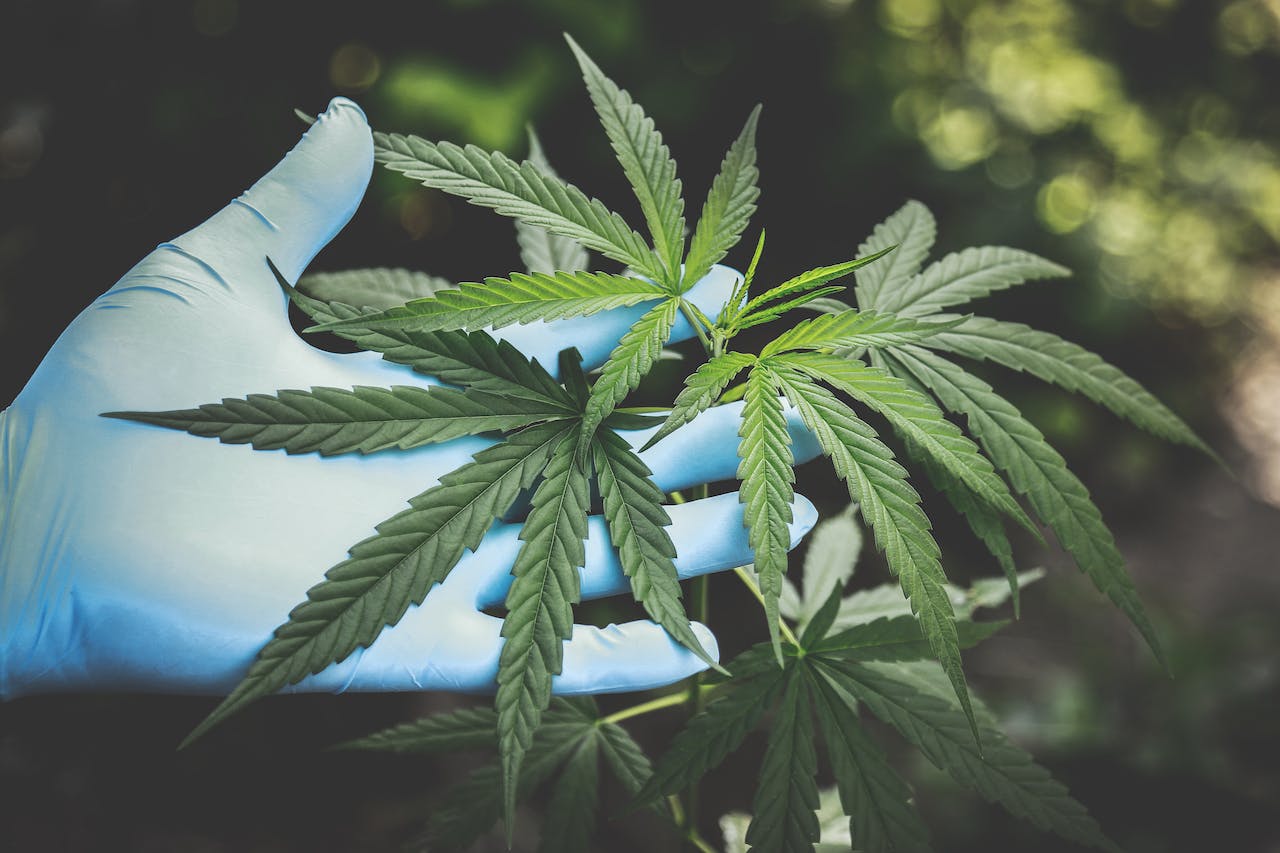Cannabis
Which Were the Seven Most Important Cannabis Studies in 2023
Since 2002, over 90% of the literature on the topic has been published, with over 60,000 scientific papers cited on PubMed.gov, dating back to 1840. Overall, cannabis studies and scientific publications demonstrate the growing interest in cannabis in the scientific community, which is an important step towards understanding its potential benefits and risks in both medical and social contexts.

The year 2023 brought a lot of new research related to cannabis. Below are some of the most important cannabis studies, along with short summaries of each. The first two studies focus on public health, followed by three studies on commercial cannabis, ending with two basic studies on the endocannabinoid system.
This year we had the opportunity to read an interesting review of public health research conducted over the last few years. It found little evidence that legalization promotes cannabis use among teenagers, and also evidence that it may contribute to reduced youth alcohol and tobacco use.
There has also been interesting research on the cannabis plant itself, including the labile non-terpene compounds (flavorants) that determine its aroma, and the susceptibility of cannabis plants to Hop Latent Viroid, a devastating infection that is spreading across North America. Additionally, interesting basic research has been conducted that sheds new light on how the endocannabinoid system works.
Read more about the seven most important cannabis studies from 2023 and find the latest cannabis news of the day with the Hemp.im mobile app.
Health effects of cannabis legalization
As of this article’s publication, 36 states have legalized medical cannabis and 18 have legalized adult recreational use of cannabis. This review article summarizes research on the health consequences of legalization in the United States.
The main outcomes analyzed included: adolescent cannabis use, alcohol consumption, prescription opioid misuse, traffic fatality rates, and crime.
Topics with a high degree of agreement across studies included:
- “There is little credible evidence to suggest that legalization promotes cannabis use among teenagers.”
- “Compelling evidence that young adults consume less alcohol after medical cannabis is legalized.”
For other topics, the authors found a lower level of agreement between studies, which makes it impossible to draw clear conclusions. These included:
- “For other public health impacts, such as mortality related to prescription opioids, the impact of medical cannabis legalization has proven more difficult to quantify, and we are therefore unable to draw firm conclusions.”
Cannabis legalization and the occurrence of psychoses
This study sought to determine whether the legalization of cannabis for adults is associated with an increase in psychosis-related cases. The cohort study included data from over 63 million patients between 2003 and 2017.
There were no statistically significant differences in the number of psychosis-related diagnoses or antipsychotic prescriptions in states with legal medical or recreational cannabis compared to states without legal cannabis.
The importance of volatile non-terpene compounds for exotic cannabis aromas
Following on from previous research that showed that the “skunky” aroma of some cannabis strains comes not from terpenes , but from a class of compounds called “volatile sulfur compounds,” the Abstrax team conducted in-depth research into the chemistry of cannabis aroma.
They found that a variety of volatile non-trpene compounds are a major factor in many of the “exotic” aromas that give varieties a variety of sweet or bold scents.
Impact of hop latent viroid on greenhouse-grown cannabis plants in Canada
Hop latent viroid is a virus-like infection that has decimated cannabis crops in North America. This pivotal 2023 study shows what HLV does to cannabis plants and how common it already is in some locations. Given the enormous impact HLV is already having, we can expect to hear more about this threat in 2024.
Comparison of cannabinoid and terpene profiles in indoor and outdoor cannabis cultivation
Some cannabis is grown indoors, some outdoors. Many consumers have strong opinions about which method is better. In a 2023 study, scientists conducted a side-by-side comparison of two genetically identical cultivars grown indoors and outdoors, analyzing their cannabinoid and terpene content. The main conclusions included:
Significantly higher levels of oxidized and degraded cannabinoids in indoor grown samples. Significantly more “atypical cannabinoids” such as C4- and C6-THCA in outdoor samples. Significant differences in terpene profiles between outdoor and indoor samples, with outdoor samples generally showing higher levels of sesquiterpenes such as caryophyllene, humulene, etc. This study suggests that outdoor cannabis cultivation leads to more diverse and abundant levels of terpenes and cannabinoids .
Disturbance of endocannabinoid tone causes cellular, behavioral and neuroendocrine responses consistent with the response to stress
The endocannabinoid system regulates many different systems in the brain and body. Endocannabinoids play an important role in regulating the perception of pain, fear and anxiety. At any given time, there is some level of “endocannabinoid tone” in your brain. As this rodent study showed , endocannabinoid stress “gates” the stress response generated in the brain’s hypothalamus.
Overall, endocannabinoids reduce the activation of the hypothalamic-pituitary-adrenal (HPA) axis, which is a key brain system that regulates stress levels. A higher endocannabinoid tone reduced stress levels in rodents.
CB1 cannabinoid receptors are expressed on a subset of dopamine neurons and underlie cannabinoid-induced aversion, hypoactivity and anxiolytic effects in mice
Endocannabinoid receptors are one of the most abundant proteins in the brain, found in many different brain regions and types of neurons. This is one of the reasons why the effects of THC can be so diverse. Depending on the dose of THC consumed, different neurons and areas of the brain may be affected to varying degrees, generating different effects.
In this rodent study, neuroscientists examined the effects of a specific subset of dopamine neurons in the brain that express CB1 receptors. They found that this particular subset of neurons has some of the negative side effects that cannabinoids like THC can cause (especially at high doses), including anxiety. This highlights how specific subsets of neurons in the brain can control specific effects produced by cannabinoids.
Cannabis studies importance
There has been a significant increase in the amount of cannabis studies over the past ten years, with over 70% of all peer-reviewed research published during this period. In the last decade, scientists have published over 35,000 articles on cannabis.
Since 2002, over 90% of the literature on the topic has been published, with over 60,000 scientific papers cited on PubMed.gov, dating back to 1840. Overall, cannabis studies and scientific publications demonstrate the growing interest in cannabis in the scientific community, which is an important step towards understanding its potential benefits and risks in both medical and social contexts.
__
(Featured image by Aphiwat chuangchoem via Pexels)
DISCLAIMER: This article was written by a third party contributor and does not reflect the opinion of Born2Invest, its management, staff or its associates. Please review our disclaimer for more information.
This article may include forward-looking statements. These forward-looking statements generally are identified by the words “believe,” “project,” “estimate,” “become,” “plan,” “will,” and similar expressions. These forward-looking statements involve known and unknown risks as well as uncertainties, including those discussed in the following cautionary statements and elsewhere in this article and on this site. Although the Company may believe that its expectations are based on reasonable assumptions, the actual results that the Company may achieve may differ materially from any forward-looking statements, which reflect the opinions of the management of the Company only as of the date hereof. Additionally, please make sure to read these important disclosures.
First published in Fakty Konopne. A third-party contributor translated and adapted the article from the original. In case of discrepancy, the original will prevail.
Although we made reasonable efforts to provide accurate translations, some parts may be incorrect. Born2Invest assumes no responsibility for errors, omissions or ambiguities in the translations provided on this website. Any person or entity relying on translated content does so at their own risk. Born2Invest is not responsible for losses caused by such reliance on the accuracy or reliability of translated information. If you wish to report an error or inaccuracy in the translation, we encourage you to contact us

-

 Fintech1 week ago
Fintech1 week agoRuvo Raises $4.6M to Power Crypto-Pix Remittances Between Brazil and the U.S.
-

 Biotech7 days ago
Biotech7 days agoEurope’s Biopharma at a Crossroads: Urgent Reforms Needed to Restore Global Competitiveness
-

 Crowdfunding2 weeks ago
Crowdfunding2 weeks agoAWOL Vision’s Aetherion Projectors Raise Millions on Kickstarter
-

 Africa2 days ago
Africa2 days agoFrance and Morocco Sign Agreements to Boost Business Mobility and Investment

























